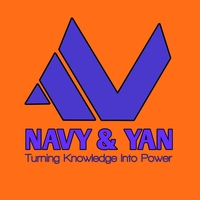Auditing Services
Navy and Yan’s Audit Services make sense of the new and increasingly complex risks existing in today’s business world and how these risks can be reflected in an organisation’s performance.
We emphasise on developing a comprehensive understanding of our client’s business and on how management operates and controls the various business processes. This approach focuses on performance indicators that drive the organisation. As part of our planning procedures, we aim to gain a thorough understanding of the business including its strategies, risks and controls. This understanding allows focusing on critical areas, thus performing an effective and efficient audit.
Our audit methodology complies with International Standards on Auditing (ISA) and is tailored specifically to the business and regulatory market environment in which our clients operate. As part of the audit process, we create a business model that represents the foundation for our audit. This model is used as a blueprint for identifying and assessing risks that may threaten the achievement of the objectives of the organisation.
As a by-product of our audit, we offer, as far as possible, recommendations for the improvement of business processes and operational as well as financial controls. We also offer advice with regards to compliance with International Financial Reporting Standards (IFRS) and the Companies Act.
We aim to follow an audit approach that brings the highest level of benefit to our clients.
External Environment review
From the very beginning, we attempt to gain a thorough understanding of the business in order to identify the external risks it faces and the overall control environment in which it operates. This enables us to identify the Key Business Processes (KBPs) on which to focus our audit.
Process documentation
We gain an understanding and document all the KBPs identified during the initial stage of the audit with special emphasis on process flows and related controls.
During this phase we also identify, as far as possible, factors that are critical to the success of each process (CSF) and related Indicators of Performance (KPIs).
Risks Identification
Following logically from the above two phases, we aim to identify risks, if any, that reside in the KBPs. This phase lays the foundation of our tests.
Final Audit procedures
Based on the risks identified, we design audit procedures which include testing and evaluation of controls (compliance tests), substantive tests and other standard audit procedures that enable us to comply with ISAs.
Review & Evaluation
Our audit process is such that we review, evaluate and report at each stage of the audit process and not only at the final stage of the audit. This enables our clients to take timely action for the improvement of processes and related controls and also implement recommendations promptly.
Major Benefits of our Audit Approach
- Holistic view
- Early identification of risks
- Focus on Key Business Processes with reduction in audit time
- Greater insight into operations rather than just focussing on the financial side of the business
- Added value recommendations for operational improvement and performance
- Suitable for small, medium size as well as large businesses.
Industry Expertise (Audit Services)
As far as possible, we assign staff on jobs according to their relevant expertise and knowledge of the industry in which our clients operate. The partners have had several years of experience in the audit of financial statements of clients operating in the following industries:
- Banking
- Building & civil engineering
- Cleaning
- Construction
- Consumer goods packaging & distribution
- Government & Para-Statal bodies
- Import and export
- Insurance and re-insurance
- Investment and investment broking
- Manufacturing
- Offshore (Global Business)
- Offshore- Fund Management
- Offshore-Private equity (Global business)
- Offshore- Real Estate (Global business)
- Pharmaceuticals
- Retail and wholesale
- Shipping & ship agency
- Sugar
- Telecommunication
- Textile and apparel (including textile machinery)
- Tour operators and travel agents
- Tourism and leisure
- Vehicle import and sale
International Standards on Quality Management (ISQM)
For audits to be effective and maintain public trust, they must be performed in a way that ensures firms and their personnel fulfil their responsibilities in accordance with applicable legal and professional standards. It is imperative that audit firms adopt a culture of best practice in accordance with these standards, enabling audit partners in issuing appropriate auditor’s reports. The threats of self interest caused by increasing financial pressure on audit partners will compromise auditor reports, as will the issues of poor planning, inadequate risk assessment and lack of resources and audit evidence. The International Auditing and Assurance Standards Board (IAASB) issues quality standards to support firms in achieving this aim. Read More...
Standards on Quality Management must address eight components
1. Firm’s risk assessment process
2. Governance and leadership
3. Relevant ethical requirements
4. Acceptance and continuance of client relationships
5. Engagement performance
6. Resources
7. Information and communication
8. Monitoring and remediation process.
We have endeavored to gradually adopt ISQM to help us perform responsible audits.
Ethics and independence
Auditors are expected to provide an unbiased and professional opinion on the work that they audit. The audit reports of an auditor who lacks indpendence will be unreliable for those who intend to rely on them.
Five Threats to Auditor Independence
The following are the five things that can potentially compromise the independence of auditors:
1. Self-Interest Threat
A self-interest threat exists if the auditor holds a direct or indirect financial interest in the company or depends on the client for a major fee that is outstanding.
2. Self-Review Threat
A self-review threat exists if the auditor is auditing his own work or work that is done by others in the same firm.
3. Advocacy Threat
An advocacy threat exists if the auditor is involved in promoting the client, to the point where their objectivity is potentially compromised.
4. Familiarity Threat
A familiarity threat exists if the auditor is too personally close to or familiar with employees, officers, or directors of the client company.
5. Intimidation Threat
An intimidation threat exists if the auditor is intimidated by management or its directors to the point that they are deterred from acting objectively.
When embarking a client, we make sure that, as far as possible, our independence will not be comprised in the immediate present or future.
Interesting quote: I think my mother was like a small company which, because things are not ship-shape, keeps two sets of books, one for the auditors and then there's the other one. Michael Lindsay-Hogg

